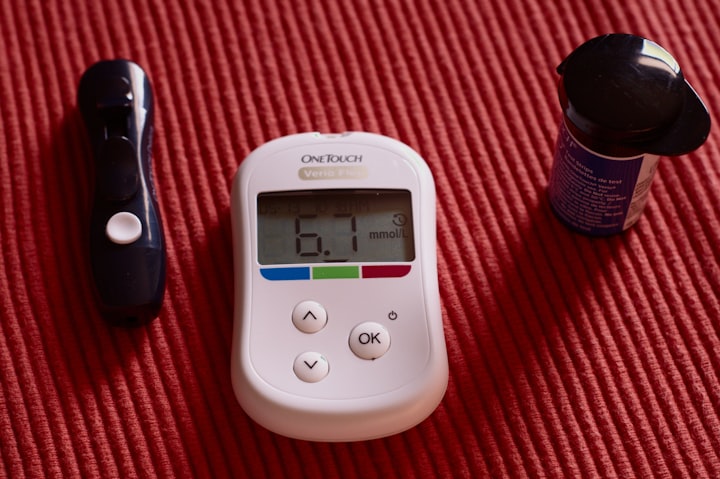Diabetes: Do you know about remission diabetes treatment that keeps sugar under control without pills?
Do you know about remission diabetes treatment?
Diabetes: Do you know about remission diabetes treatment that keeps sugar under control without pills?
Diabetes is a chronic condition that affects millions of people worldwide. It is a metabolic disorder that results in high blood sugar levels. In the absence of proper treatment, diabetes can lead to serious complications such as blindness, nerve damage, kidney failure, and cardiovascular disease. Diabetes is usually treated with medications such as insulin, metformin, and other oral medications. However, a new approach to diabetes treatment called remission diabetes treatment is gaining popularity as it offers a way to keep sugar under control without pills. In this article, we will discuss what remission diabetes treatment is and how it works.
What is Remission Diabetes Treatment?
Remission diabetes treatment is a new approach to diabetes management that focuses on achieving long-term glycemic control without medication. The goal of this treatment is to put diabetes into remission, which means achieving normal blood sugar levels without the use of diabetes medication.
The remission diabetes treatment approach involves a comprehensive lifestyle intervention that includes a low-calorie diet, increased physical activity, and behavioral therapy. The idea behind this approach is that by making significant lifestyle changes, it is possible to reverse the underlying causes of diabetes, such as insulin resistance and beta-cell dysfunction.
How Does Remission Diabetes Treatment Work?
Remission diabetes treatment works by addressing the underlying causes of diabetes. The main causes of diabetes are insulin resistance and beta-cell dysfunction. Insulin resistance occurs when the body becomes resistant to the effects of insulin, which is the hormone that regulates blood sugar levels. Beta-cell dysfunction occurs when the beta cells in the pancreas, which produce insulin, become damaged or destroyed.
The remission diabetes treatment approach targets these underlying causes by making significant lifestyle changes. The first step in this approach is a low-calorie diet. This diet is designed to promote weight loss, which has been shown to improve insulin sensitivity and reduce beta-cell dysfunction. The diet is typically a very low-calorie diet, consisting of 800 to 1000 calories per day, and is followed for several months.
The second step in the remission diabetes treatment approach is increased physical activity. Exercise has been shown to improve insulin sensitivity and reduce beta-cell dysfunction. The exercise program is tailored to the individual's needs and abilities and may include a combination of aerobic exercise, resistance training, and flexibility exercises.
The third step in the remission diabetes treatment approach is behavioral therapy. This therapy is designed to help individuals make and maintain the necessary lifestyle changes. It typically involves working with a counselor or therapist to address issues such as stress, motivation, and self-esteem.
The goal of remission diabetes treatment is to achieve long-term glycemic control without medication. Studies have shown that remission diabetes treatment can lead to significant improvements in blood sugar control and other health outcomes. For example, a study published in the Lancet Diabetes & Endocrinology found that 46% of participants who underwent remission diabetes treatment achieved remission of diabetes at 12 months, compared to 4% of participants in the control group.
Is Remission Diabetes Treatment Right for You?
Remission diabetes treatment is not for everyone. It is typically recommended for individuals with type 2 diabetes who are overweight or obese and have been recently diagnosed. It may not be appropriate for individuals with type 1 diabetes or those who have had diabetes for a long time.
Remission diabetes treatment requires a significant commitment to lifestyle change. It is not a quick fix and requires ongoing effort and dedication. However, for those who are willing to make the necessary changes, remission diabetes treatment offers a way to achieve long-term glycemic control without medication.
Conclusion
Diabetes is a chronic condition that affects millions of people worldwide. While medication is an effective way to manage diabetes, remission diabetes treatment offers a way to achieve long-term glycemic control without medication. This approach involves a low-calorie diet, increased physical activity, and behavioral therapy to address the underlying causes of diabetes, such as insulin resistance and beta-cell dysfunction. Remission diabetes treatment has been shown to be effective in achieving remission of diabetes in some individuals, and it offers a promising approach to diabetes management.
About the Creator
Gobi Munusamy
Experienced writer and content creator with a passion for storytelling and a talent for crafting compelling narratives. Skilled in a variety of genres and formats, including personal essays, news Lifehacks, and creative fiction.







Comments
There are no comments for this story
Be the first to respond and start the conversation.